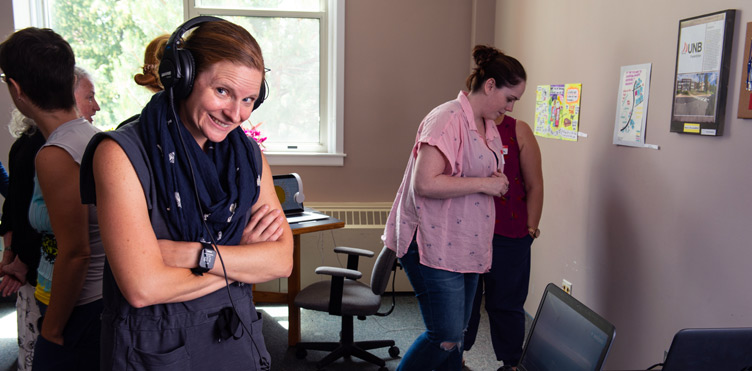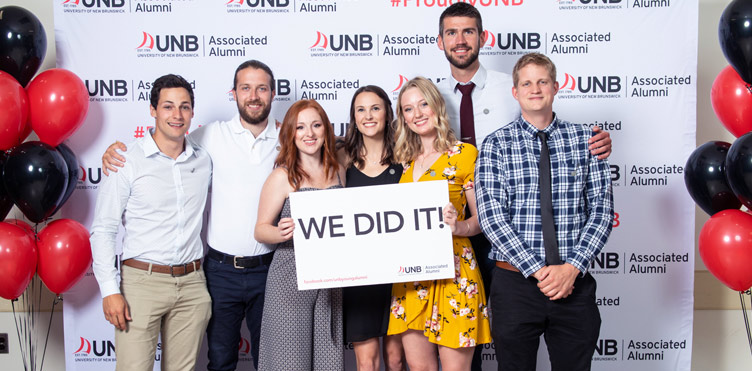L2RIC faculty offer a variety of courses at the B.Ed and M.Ed level related to a diverse array of second/ additional language teaching and learning topics.
Do you have an interest in teaching either English or French as a second language? L2RIC offers two certificates in second language teaching within the context of its Bachelor of Education program.
The graduate Certificate in Bilingual and Multilingual Education is a 15-credit-hour certificate, consisting of five courses (two required courses and three electives) that can be completed within 1 year. Candidates are provided a 5-year timeframe for completion of the certificate.
Within the context of the Bachelor of Education degree, L2RIC offers a concentration in teaching French as a Second Language and a certificate.
Description: This certificate is designed to provide students with the knowledge and skills necessary to become effective teachers of French as a Second Language (FSL). The CTFSL requires successful completion of:
1. Three required courses* according to program:
Secondary (MYA): ED 5568, ED 5569, ED 5561 (ED 5568 is the prerequisite course for ED 5569)
Elementary (Early Years): ED 5562, ED 5563, ED 5561 (ED 5562 is the prerequisite course for ED 5563)
2. A practicum (ED 5050) in an FSL context (minimum 50% of total practicum)
*ED 5575 (Reflections on Second Language Theory & Practice) is not required, however, it is highly recommended.
Eligibility: In order to enroll in the CTFSL, candidates must be currently enrolled in the BEd program. Candidates must fill in a Certificate application form (available at the L2RIC office, 346 Marshall d'Avray Hall), accompanied by a New Brunswick certificate of oral competency with a minimum level of Advanced. In addition, in order to enrol in our FSL courses, candidates must also possess a high level of oral and written French competence.
Within the context of the Bachelor of Education degree, L2RIC offers a Certificate in Teaching English as a Second Language (CTESL) that is accredited and recognized by TESL Canada.
Description: The concentration leading to this certificate is designed to provide participants with knowledge and skills necessary to become effective teachers of English as a second language (ESL). The CTESL requires successful completion of the following courses:
1. Three compulsory courses:
2. One approved elective course in the area of second language education, cultural studies or literacy
3. A practicum in TESL (ED 5566 or equivalent)
Eligibility: In order to be eligible to enroll in the CTESL, candidates must either have completed an undergraduate degree and be accepted into the CTESL as a no degree student or be currently enrolled in a B.Ed. or M.Ed. program.
In addition, candidates whose first language is not English must also demonstrate a high level of English language proficiency as evidenced by:
Note: Equivalent tests may be considered.

It is also possible to specialize in second language education within the context of the masters degree at UNB. Master of Education (MEd) students will register in the Curriculum Studies option and have the option of completing a report or thesis in the area of second language education. Specific courses when available and assignments within general courses such as Introduction to Research, Curriculum Development, and Program Evaluation should focus on some aspect of second language education.
Course description: This course will examine the theoretical constructs of universal design for learning (UDL) and second language learning. In particular, students will explore foundational principles related to inclusive second language teaching, learning and assessment.
Instructor: Dr. Renée Bourgoin
Course description: This course will examine the critical role of literacy in the second or additional language classrooms. This analysis will be guided by theories and principles of multiliteracies and multilingualism as well as their related pedagogies. After establishing the underlying theories, we will explore practices that promote the development of speaking, listening, reading and writing for second or additional language learners.
Instructor: Dr. Josée Le Bouthillier
Course description: This course will examine core issues related to bilingual and multilingual education including theories of language development, cultural awareness and sensitivity, Global English, language death and genocide, language revitalization, language rights, language as a resource, identity, and empowerment. It will also explore strong and weak forms of bilingual and multilingual programming and assessment, including second and foreign language immersion.
Instructor: Dr. Karla Culligan
Course description: This course would provide both theoretical and practical information related to the teaching of students learning English is an additional language (EAL). It will examine core principles and established practices related to the education of students of diverse linguistic and cultural backgrounds in mainstream English schools. Topics will include linguistic and cultural support, differentiated instruction within an inclusive learning context, cultural awareness and sensitivity. The course will also promote a balanced literacy approach that incorporates and values the learner’s first language in the acquisition of EAL.
Instructor: Dr. Paula Kristmanson
These courses would be of particular interest to those working in various second language contexts: French immersion, core French/intensive French, ESL, or English as an additional language (EAL). Courses will be conducted in English but assignments may be completed in English or in French.
These courses are open to students currently enrolled in the M.Ed at UNB and also to new students. Students who are not already accepted to the program may apply to take a course as a non-degree student.
Contact the Graduate Office of the UNB Faculty of Education at edgrad@unb.ca for more information about registering as a non-degree student.
For more information about ED 6103 Foundations of Bilingual and Multilingual Education, contact Dr. Karla Culligan.
For more information about ED 6110 Teaching and Learning in Multilingual Contexts, contact Dr. Paula Kristmanson.
It is possible to specialize in second language education within the context of the doctoral degree at UNB. Students applying to the Doctor of Philosophy (PhD) degree in Education Studies must possess a sound academic and professional background in the field of second language education, including a thesis or the equivalent in a master's program.
